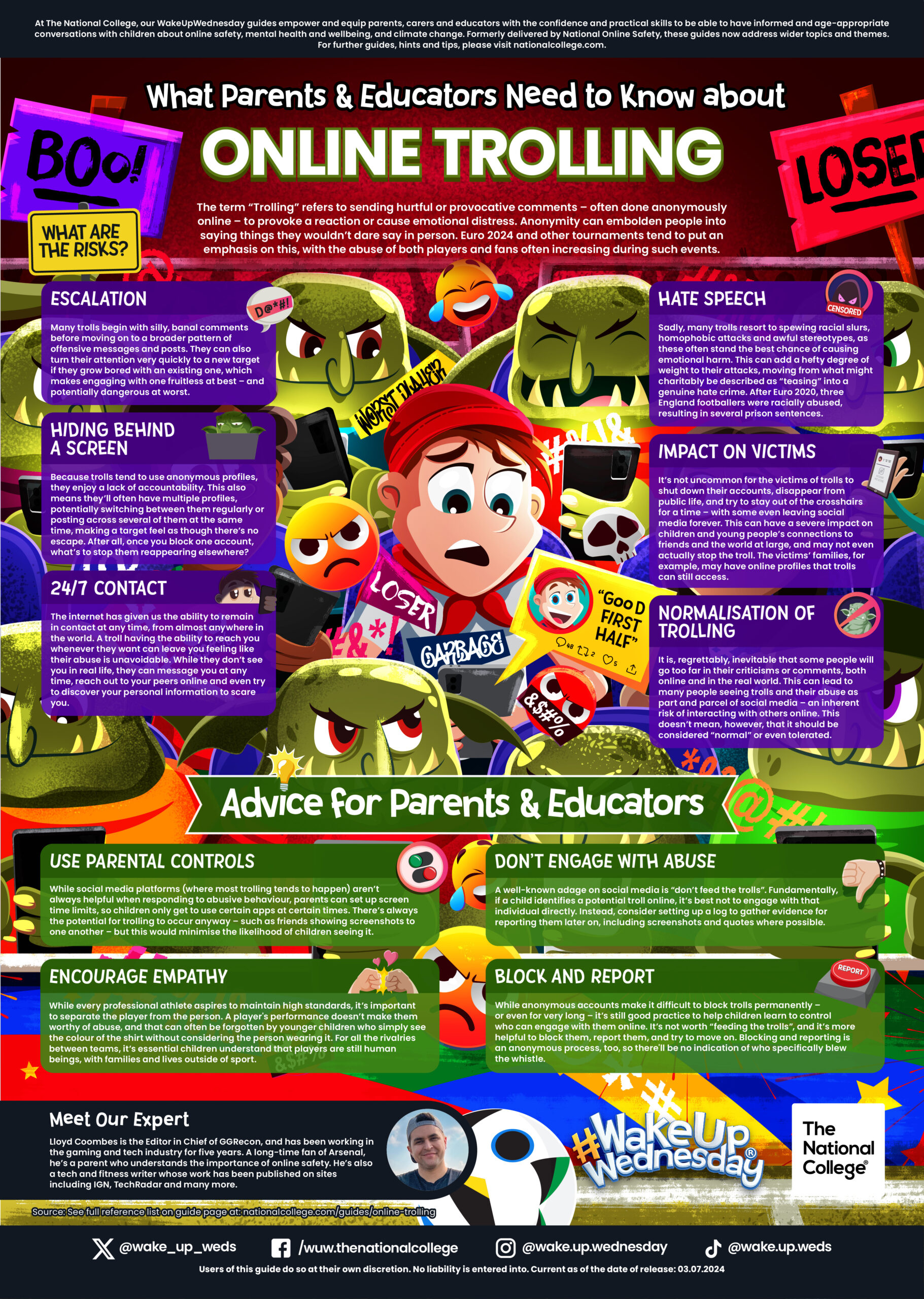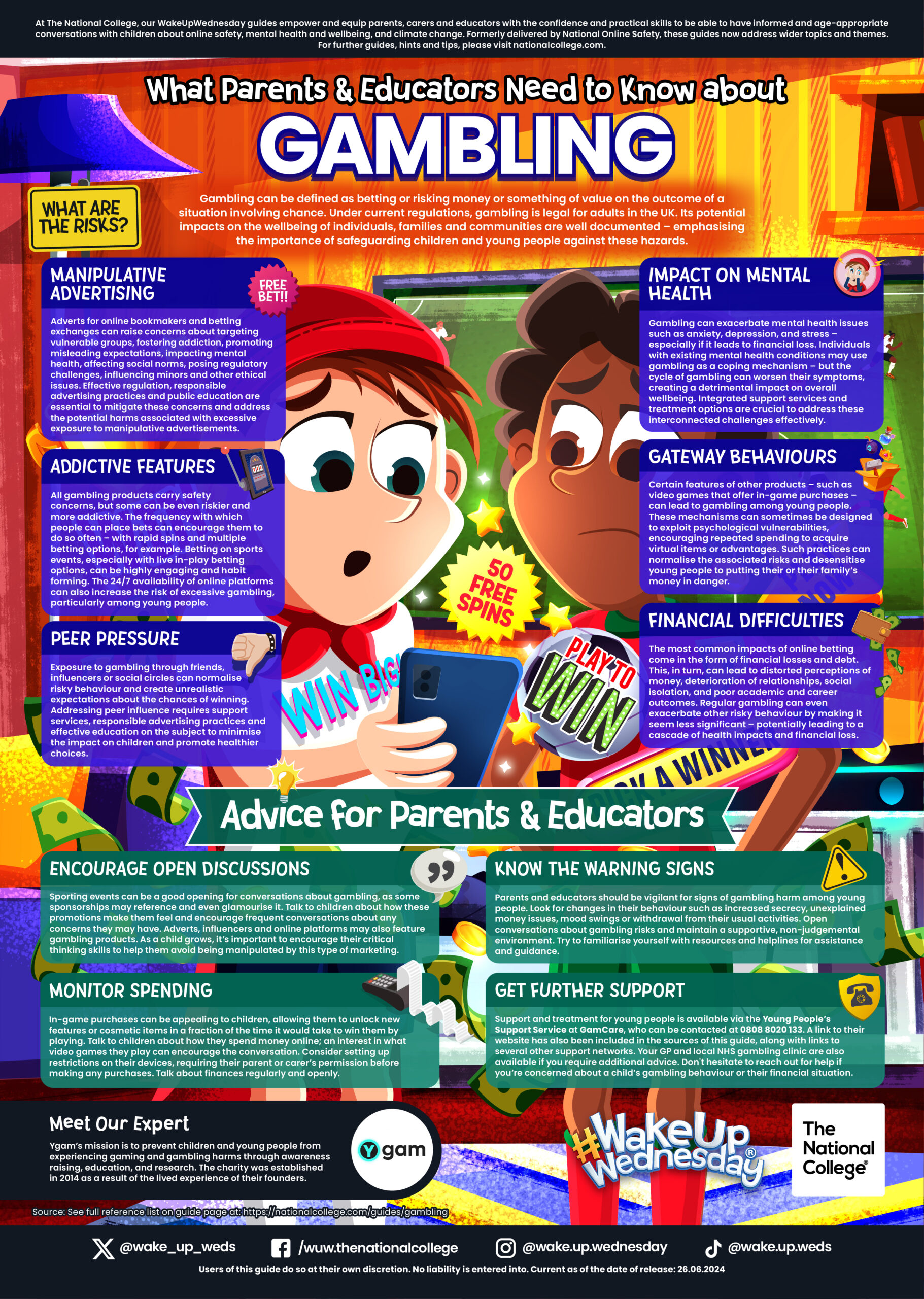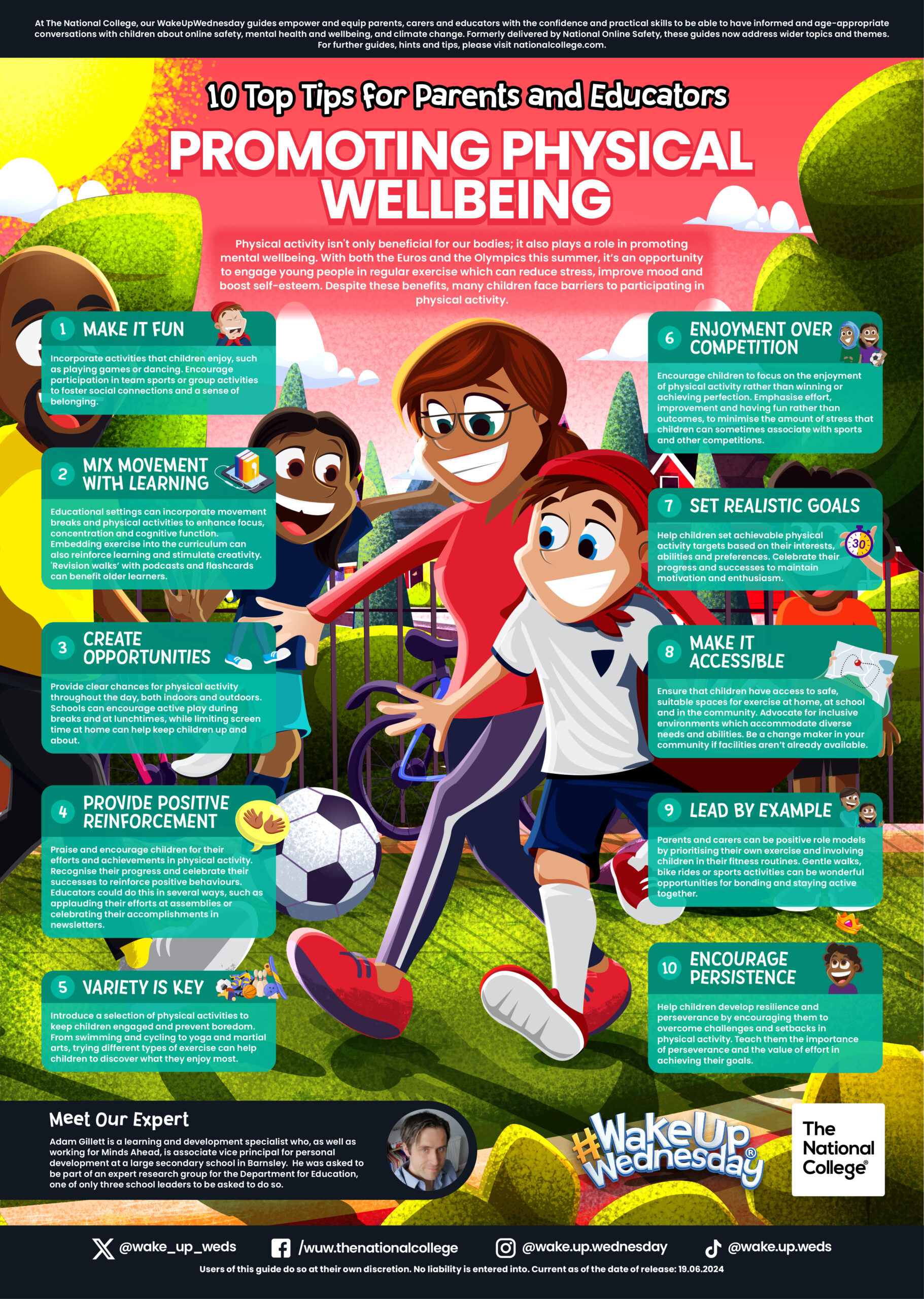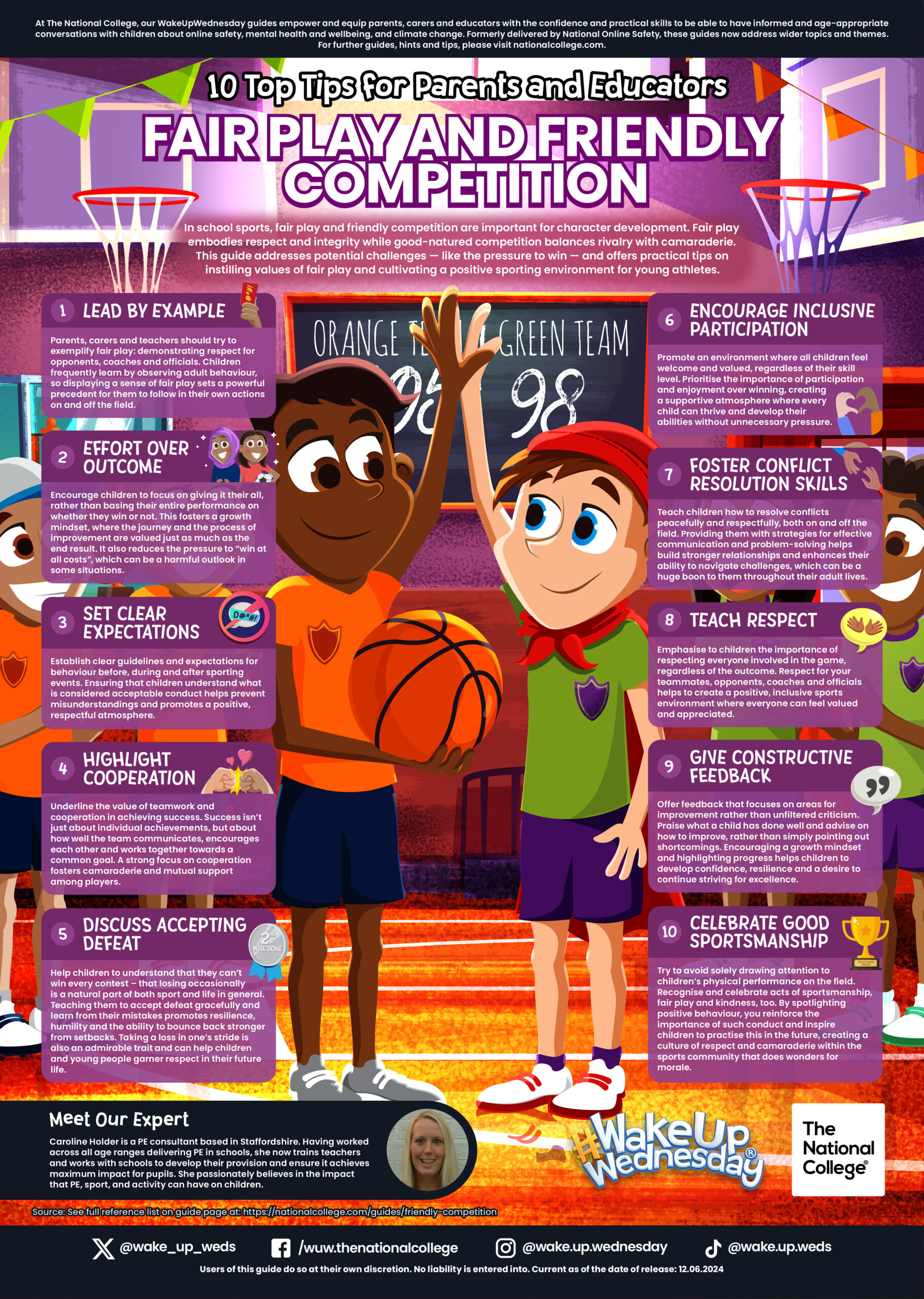



A 2023 report from the Gambling Commission found that 40% of 11–to 17-year-olds had some experience of gambling in the preceding 12 months. That’s a significant number of children and young people involved in an over 18s activity. Engagement and exposure to gambling can impact one’s finances, mental health and wellbeing. It is crucial we are all aware of the risks and know how to protect and support our children.
It is quite challenging to protect our children against exposure to gambling at any time, but especially around major sport events like Euro 2024. This week’s Wake up Wednesday guide tackles the most prominent risks that gambling poses to young people, and explains how best to protect against them.

A recent Sport England study found that less than half (47%) of children in the UK currently meet the Chief Medical Officers’ guidelines of taking part in an average of 60 minutes or more of sport and physical activity a day. While this figure may see a rise during the Euros, taking this chance to get children and young people engaged in regular exercise could cement the increase in a more permanent way.
However, it can be tricky to know where to start, or how best to encourage young people to stay active – so, our Wake up Wednesday guide is here to offer some tips. This week, we’re sharing expert advice on how to promote exercise and the importance of physical wellbeing for the younger generation.


– Monday, Period 5: Year 7
– Tuesday, Period 5: Year 8
– Wednesday, Period 5: Year 10
– Thursday, Period 5: Year 9
To make a donation, please visit the official school fundraising page at:
On this website we use first or third-party tools that store small files (cookie) on your device. Cookies are normally used to allow the site to run properly (technical cookies), to generate navigation usage reports (statistics cookies) and to suitable advertise our services/products (profiling cookies). We can directly use technical cookies, but you have the right to choose whether or not to enable statistical and profiling cookies. Enabling these cookies, you help us to offer you a better experience.